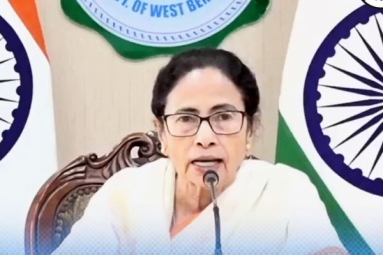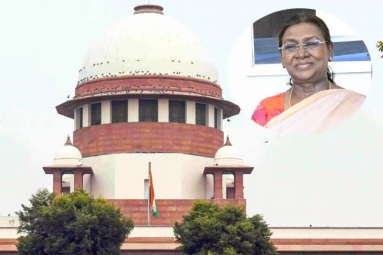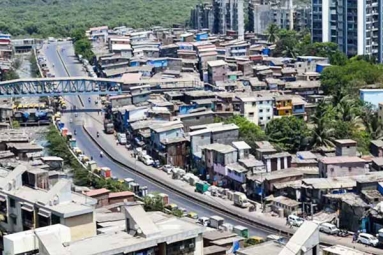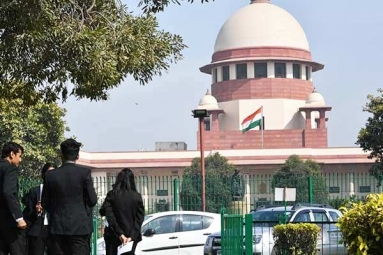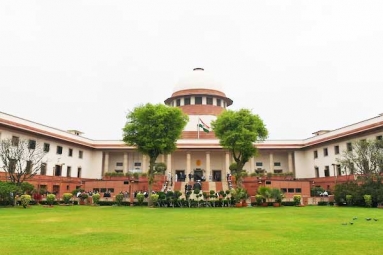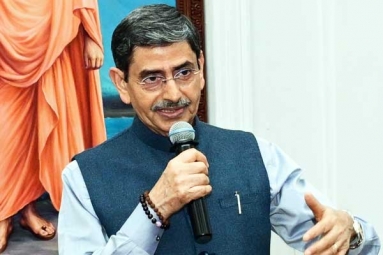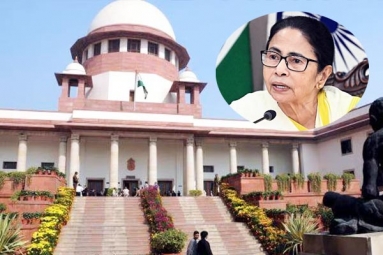Supreme Court: Once Criminality of Section 377 Goes Away, So will LGBTQ Stigma
July 12, 2018 16:39
(Image source from: DNA India)
The Supreme Court of India said today that once the criminality of consensual gay sex goes away, then accompanying issues like social stigma and discrimination against the LGBTQ (Lesbian, Gay, Bisexual, Transgender and Queer) community will also go.
Observing the sort of environment created in the Indian society over the years leading to deep-rooted discrimination against the community, a bench of the five-judge constitution, hearing petitions seeking decriminalization of 158-year-old colonial law under Section 377 of the Indian Penal Code, said discrimination against such people has likewise adversely impacted their mental health.
The bench, headed by Chief Justice Dipak Misra, asked attorney Maneka Guruswamy, who was appearing for a petitioner, whether there was any law, rule, regulation, bye-law or guideline which barred or restrained homosexuals from availing any right which is available to others.
"There are no such provisions," she said. The bench then said the LGBTQ community faced the stigma because of the criminality connected to consensual the same-sex relationship.
"Once the criminality (under section 377) goes, then everything will go (all the bars, social stigma, and others)," the bench, which also comprised Justices RF Nariman, AM Khanwilkar, DY Chandrachud and Indu Malhotra, said.
"Over the years, we have created an environment in the Indian society which has led to deep-rooted discrimination against people of same sex involved in a consensual relationship and this has impacted their mental health also," the bench said on the third day of crucial hearing to decide the constitutional validity of Section 377 of the Indian Penal Code (IPC).
Section 377 refers to 'unnatural offenses' and says whoever voluntarily has carnal intercourse against the order of nature with any man, woman or animal, shall be punished with captivity for life, or with captivity of either description for a time period which may last to 10 years, and shall also be responsible to pay a penalty.
Referring to the provision of the Mental Health Care Act, the bench said: "it also recognizes the fact that such persons cannot be discriminated against on the ground of sexual orientation".
"This community feels inhibited as they do not get even proper medical care because of the prejudice," Justice Malhotra said, adding even medical professionals do not maintain confidentiality.
The bench had said it would test the validity of the law in relation to the consensual sexual acts of two adults and if it determines to strike down the penal provision then it would withdraw "ancillary disqualification" of LGBTQ community members which can join services, contest elections, and form associations.
On Wednesday, Guruswamy referred to reports of Indian and American psychiatric bodies and said homosexuality was a normal sexual orientation.
Wording the law as a "terrible colonial legacy", she had said it profaned Articles 15 (discrimination on sex), 14 (equality), 19 (liberty) and 21 of the Constitution and has a "chilling effect" on the sexual minority.
By Sowmya Sangam









